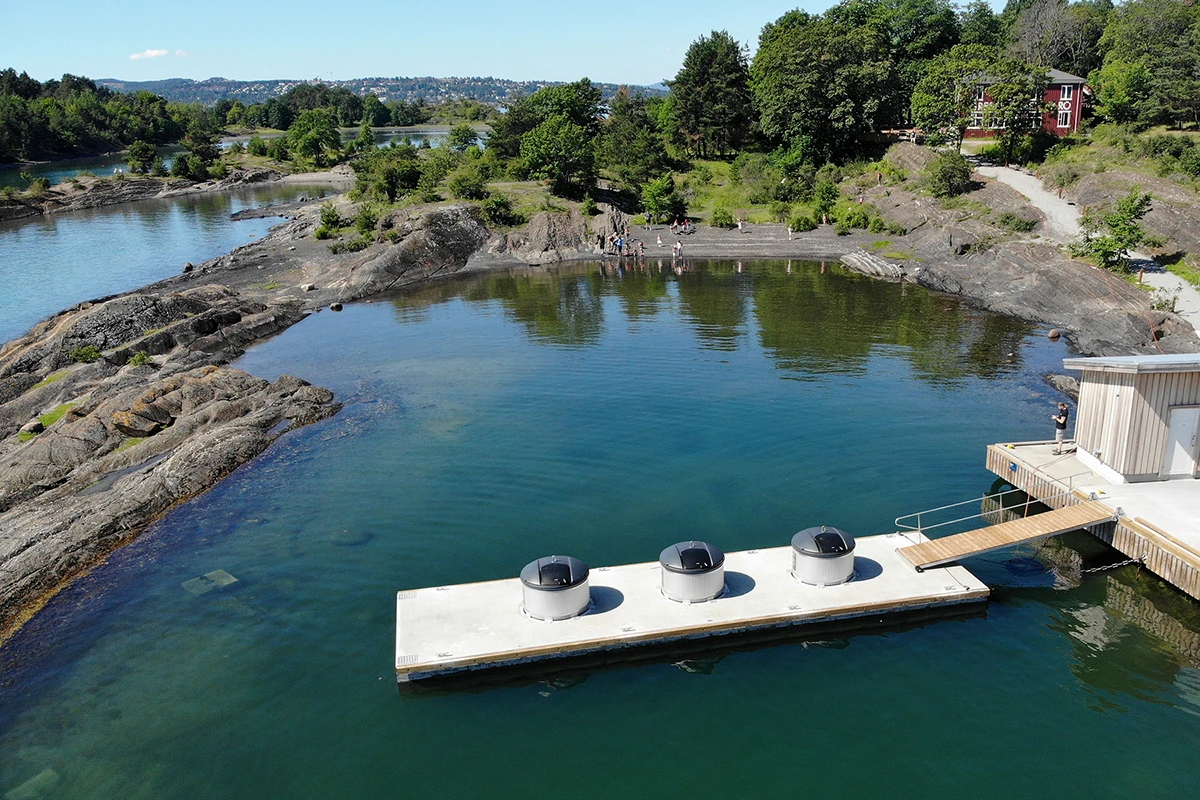Una isla noruega se convierte en un muelle flotante de basuras
La eliminación de residuos en una pequeña isla sin acceso rodado puede resultar complicada. Pero la Kommune Bymiljøetaten (agencia municipal de medio ambiente urbano) de Oslo (Noruega) y SF Marina idearon una solución novedosa para Gressholmen- Rambergøya, una popular reserva natural situada a poca distancia en ferry de la ciudad. Un pequeño muelle flotante de hormigón alberga tres contenedores de basura Molok® Deep Collection™ que se vacían desde el agua con una grúa montada en un barco de recogida de basura.
El proyecto utiliza un pontón flotante de hormigón SF Marina de 4 m de ancho x 15 m de largo SF1040. Altamente adaptables a una amplia gama de aplicaciones, pueden modificarse para satisfacer las necesidades de prácticamente cualquier proyecto. En el caso del pontón de Gressholmen- Rambergøya, durante la fabricación se moldearon en la estructura tres orificios para los contenedores Molok. El pontón se fabricó en las instalaciones de SF Marina en Wallhamn (Suecia), se envió a Oslo y se trasladó flotando a la isla.
Utilizado principalmente como sección de muelle, el SF1040 es extremadamente estable gracias a su gran masa y su bajo centro de gravedad. Mientras que el depósito flotante de basura de Gressholmen-Rambergøya está situado en una cala protegida y anclado al lecho marino con cadenas y anclas, los pontones del SF Marina están diseñados para resistir huracanes.
El 60% de un contenedor Molok de 5 m3 suele utilizarse en tierra, pero en el caso del proyecto del puerto deportivo de San Francisco está bajo el agua. El entorno fresco impide la formación de bacterias que producen olores. Además, como la mayor parte del contenedor está oculta, la abertura del recipiente es baja y los niños y las personas en silla de ruedas pueden acceder fácilmente. Una pasarela de 6 m facilita la entrada al muelle desde la orilla y se adapta a la leve fluctuación de las mareas de la zona.
La tapa de cada contenedor Molok tiene una funda interior reutilizable que contiene la basura. La grúa levanta la tapa y el contenido, lo gira hasta el barco y un trabajador tira de una cuerda que abre el fondo para verter la basura. Debido a la gran capacidad de los contenedores, se necesita un 80% menos de vaciados que con los contenedores de basura de tamaño estándar.


